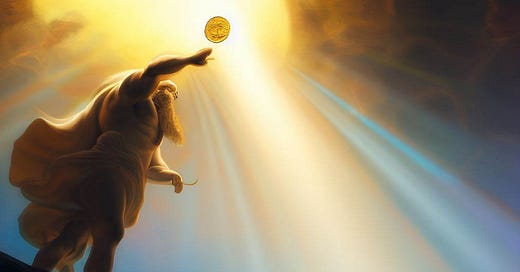Thank a comments section guy for the trillion-dollar coin
While political cliques fight for credit, all roads end in one man: Carlos Mucha.
Another Democratic president means another round of debt-ceiling brinksmanship, which means of course that we’re reviving one of the funniest political proposals of the past several decades: the trillion dollar coin. This is going to be an extremely niche post, but over the past few days there’s been some debate about where the coin proposal actually ca…
Keep reading with a 7-day free trial
Subscribe to Carl Beijer to keep reading this post and get 7 days of free access to the full post archives.





